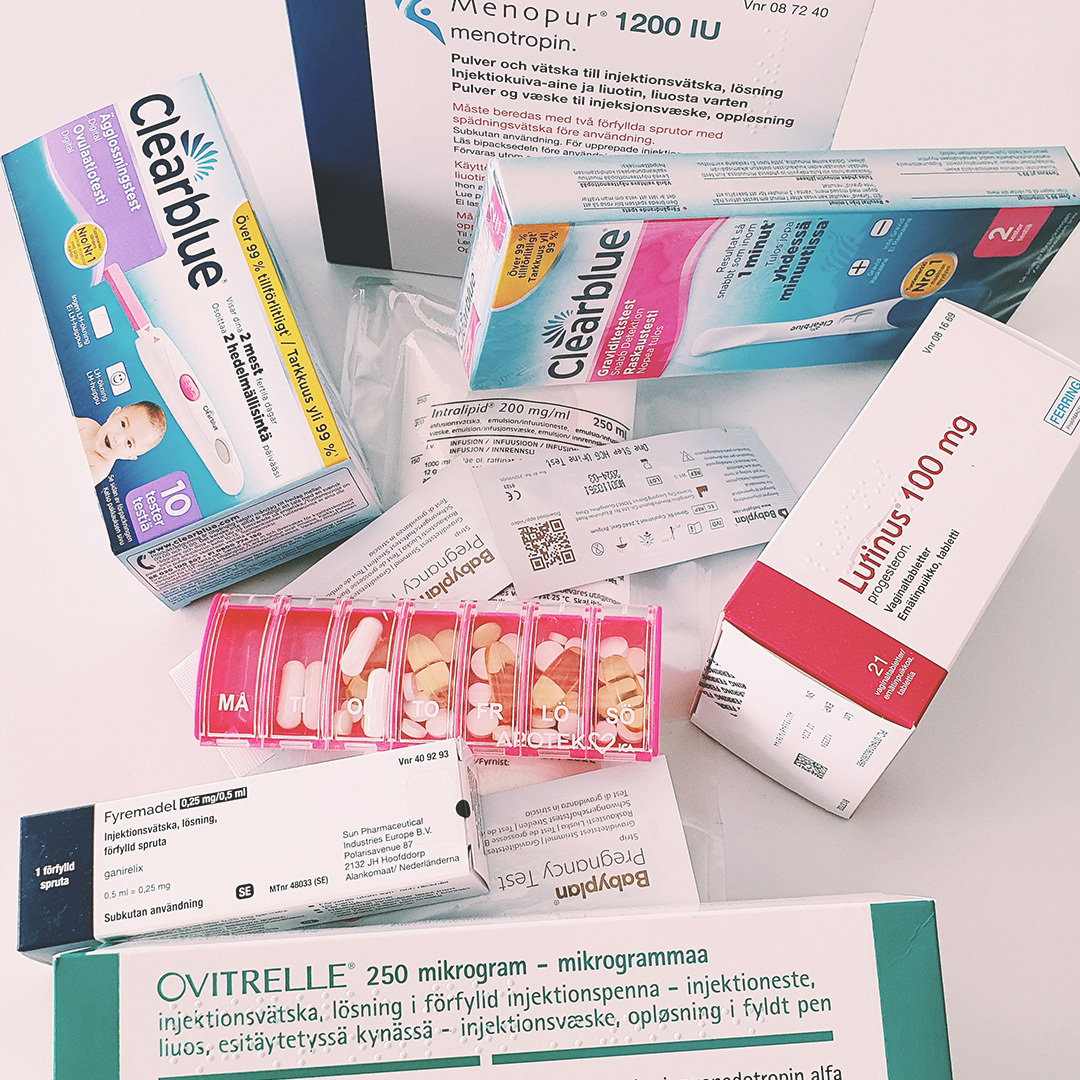Understanding PCOS and its impact on fertility

June is International Infertility Awareness Month, a time to highlight the experiences of those facing infertility and to deepen our understanding of its causes, including conditions like Polycystic Ovary Syndrome (PCOS). PCOS is one of the leading causes of infertility in women, affecting millions worldwide, yet many people don’t fully understand its impact. Let's take a closer look at what PCOS is, how it relates to infertility, and some top tips for managing it.
What is PCOS?
Polycystic Ovary Syndrome (PCOS) is a common hormonal disorder that affects approximately 10% of women in reproductive age. It's known for causing a variety of symptoms such as irregular periods, acne, weight gain, and excess hair growth. These symptoms occur due to higher levels of male hormones known as androgens. Although the exact cause of PCOS isn’t known, it tends to have a hereditary component.
Connection between PCOS and infertility
One of the most challenging aspects of PCOS for many women is its impact on fertility due to irregular or absence of ovulation. Experiencing infertility can be incredibly frustrating and emotionally challenging. PCOS can disrupt ovulation, which is crucial for natural conception. Plus, obesity is more common in women with PCOS, and a higher body mass index (BMI) is linked to poorer reproductive outcomes. This makes maintaining a healthy weight really important.
In vitro fertilization (IVF) is a common and effective treatment for women with PCOS who have trouble conceiving. IVF involves stimulating the ovaries to produce multiple eggs, which are then retrieved and fertilized in the lab. This process bypasses ovulation issues caused by PCOS, increasing the chances of conception. However, it requires careful monitoring due to the risk of Ovarian Hyperstimulation Syndrome (OHSS), a condition where the ovaries swell and become painful. OHSS is a possible complication of IVF that is more common in women with PCOS. However, IVF provides a controlled and effective method for achieving pregnancy in women with PCOS.
The silver lining? Women with PCOS often have a greater ovarian reserve, meaning more eggs can be retrieved during IVF, which can lead to more embryos and a greater chance of success.
Tips for managing PCOS and infertility:
Understand and track ovulation:
Tracking your period is key, to understand your cycle better and pinpoint the best times to try for a baby. You can track ovulation by monitoring your body temperature or cervical mucus.
Consult a doctor early:
If you have been trying to get pregnant yet haven’t had any periods or very few in the past 3 to 6 months, consult a doctor or gynecologist to discuss next steps and assess your fertility.
Maintain a healthy weight:
Living a healthy lifestyle is crucial. If you have a higher BMI you can reduce PCOS symptoms and potentially improve your fertility by losing just 5% of your body weight.
Balance blood sugar and stress levels:
Eating balanced meals, getting regular exercise, and practicing stress-reducing activities like yoga or meditation can really help.
Seek fertility help:
You might need ovulation stimulation or in vitro fertilization (IVF). In Sweden, you can seek fertility treatment after only 6 months of trying, instead of the usual 12-month waiting period, if there are complicating factors such as absent menstruation/ovulation or if you are over 35 years old.
Get emotional support:
Experiencing infertility can be emotionally challenging so make sure to find a support system – through family, friends, counseling or online support groups and forums. Support from others who understand what you’re going through can be a valuable resource.
About Ovulai
Ovulai has developed the first PCOS app in Swedish, offering evidence-based knowledge and support for PCOS-treatment, self-care and self-monitoring between doctor visits. In less than a year, our app has helped thousands of women regain control over their PCOS diagnosis, manage symptoms, and achieve their health goals like getting pregnant with our personalized health plans. Our motto at Ovulai is simple: women should never feel alone or powerless when dealing with PCOS or other chronic conditions like endometriosis or PMS/PMDD. With the right tools and support, we can take back control and start feeling better.
Try it for free—download it
https://ovulai.com/
About Bumpy
Bumpy supports you through your fertility journey by helping you find the right fertility clinic based on your needs, connecting you with others going through similar challenges through a supportive community and lets you share your fertility journey with confidence. Just like Ovulai, Bumpy was created out of personal experiences. At Bumpy we know how difficult the path to parenthood can be after a decade of going through many miscarriages, operations, countless hormonal injections and IVF treatments and Bumpy was created so you don’t need to navigate this journey alone. Find others who also have PCOS and are experiencing infertility in the Bumpy app.
You are not alone. Download the free Bumpy app now!
https://link-to.app/BumpyApp


Andere Artikel

Samantha's Story
Ich wusste von Anfang an, dass es schwierig sein würde, mit meinem Partner ein Kind zu bekommen. Als... Artikel lesen

Unfruchtbarkeit des Mannes
Die Definition männlicher Unfruchtbarkeit liegt dann vor, wenn die Ursache der Unfruchtbarkeit bei e... Artikel lesen

Endometriose
Die Europäische Gesellschaft für menschliche Reproduktion und Embryologie (ESHRE) hat kürzlich eine ... Artikel lesen
.jpg?alt=media&token=912e3772-6724-4c20-a29e-201478dda308)
Intrauterine Insemination
Die intrauterine Insemination (IUI), auch künstliche Befruchtung genannt, ist eine Art der Fruchtbar... Artikel lesen

Jessica Olers's Story
Manchmal läuft es nicht wie geplant. Seit ich klein war, habe ich von einer großen Familie mit viele... Artikel lesen

Jessica’s Story
Ich war dreimal schwanger. Während ich dies hier schreibe, bin ich schwanger. Aber ich spüre es nich... Artikel lesen

Klara’s Story
Unsere Kinderwunschzeit begann vor zwei Jahren. Der Prozess verlief überhaupt nicht so, wie wir es e... Artikel lesen
.jpg?alt=media&token=fc32a2e6-a127-4170-b5fb-b9338770ed1a)
Die Auswirkungen von Vitamin D auf die Fruchtbarkeit
Vitamin D ist ein Vitamin, das in der Haut durch Sonneneinstrahlung (UVB-Strahlung) synthetisiert wi... Artikel lesen

Veronica’s Story
Babies machen. Heutzutage hat dies eine völlig andere Bedeutung. Im Februar 2019 entschieden wir, da... Artikel lesen

Tova’s Story
Das ist #mybumpystory – eine emotionale Achterbahnfahrt mit wiederholten Fehlgeburten und hoffentlic... Artikel lesen